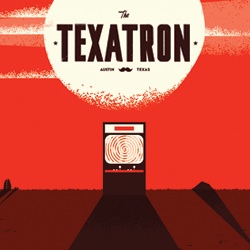RAGDOLL METAPHYSICS: JG BALLARD, BOREDOM, AND THE VIOLENT PROMISE OF VIDEOGAMES
The suburbs dream of violence. Asleep in their drowsy villas, sheltered by benevolent shopping malls, they wait patiently for the nightmares that will wake them into a more passionate world…
It’s perhaps inevitable for me – a career nerd whose entire existence is awash in aspects of gaming – that an interest in JG Ballard’s prophetic, psychological fiction would feed into how I thought about my chosen subject. The same seems true of anyone who reads the author with any kind of attention.
The tributes following his death last week come not only from writers, but from architects, musicians, artists, film-directors, and technologists. They each, through their own lenses, see him as not simply a science fiction writer, but as a philosopher. “Picturing the psychology of the future is what it’s all been about,” said Ballard.
He was a man who did not use computer – the novels emerged longhand from a typewriter – and yet Ballard’s dissection of technology and the modern world it has fostered was remarkably precise. His careful, almost technical, writing seemed to pinpoint contemporary reality even when he wrote about drowned, jungled cities, or terrorist cults in suburban English settings.
He analysed and exploded the celebrity-obsessed media culture long before it hit its zenith, with The Atrocity Exhibition in 1970, and spent much of his career reimagining the environmental disasters that face us, with The Drought, The Drowned World, and The Terminal Beach.
But it was the books which looked at consumerism, of the work-leisure-work culture of the early 21st century, and the observations about the banality of our comfortable lives, that really struck me. They contain ideas that now turn up in my games writing without me even consciously writing them down.
The future would be boring, said Ballard. Our modern age sits at the point at which the march of rationalism and reason has peaked, divorcing us from our early extremism and our innate primitivism, and giving us a bland culture of calm consumer choices and deadened emotions.
The only way the inner animal of human beings could deal with this strange imprisonment was, said Ballard’s fiction, with sporadic outbreaks of violence, terror, and surrealism. As one of his characters articulated it: “The future is going to be a struggle between vast systems of competing psychopathies, part of a desperate attempt to escape from a rational world and the boredom of consumerism.”
Ballard seems to have pieced something together, like a detective: a point-and-click thinker with his inventory full of random objects. His clues were in the subliminal feelings we face each day: the impulses we might have to smash up our offices and shops, the weird moments when we wonder what it might be like to swerve off the road in our bubble-like SUV. Ballard mapped them, tagged them, and extrapolated.
When I was putting my book on gaming together in 2007, I felt the spectre of Ballard’s work behind me. Games, I began to argue, were an antidote to the most modern, and Ballardian, of conditions: boredom. In fact, they could represent the escape hatch from the very imprisonment of the soul that Ballard was describing. They were trapdoors out the tops of our heads, into some where else: an active place, rather than the passive pleasure-boat trip of books or television.
I re-read Super Cannes, Ballard’s final masterpiece in which gated-community executives went out on violent jaunts to nearby towns to deal with their psychological problems, and thought this: videogames should be more violent, not less.
That is not to say that videogames need to be more sensationalist, more vulgar, or more crass, but that they need not fear being more transgressive, or more expressive, or more visceral. They need not to shy away from their darker depictions of our fantasies, or become embarrassed when people point out how they dwell on violence and excitement. This, the safe excursion to the gladiatorial arena, is what games do best.
Ballard’s books are not literal predictions, of course, but a kind of satire that emphasizes the problems we face. What to do with too much leisure time? How do we properly excise our demons when we’re over-worked and over-stressed in a comfortable, air-conditioned working environment? What happens to the hormonal, sexual human animal when it has spent too long being drugged in a mirror-glass airport? What do you do when you grew up in a boring Northern-European suburb and weren’t thrilled by sports or business? Where do you go?
Ballard’s characters came up with the most extreme solutions: crashing cars, fighting wars inside sky-scrapers, forming terrorist movements in leafy London suburbs. The solutions for our real world might be far less extreme, but they could easily run in parallel to Ballard’s imagination. My solution was to become a gore-spattered Quake III drill sergeant, an Eve Online fleet commander, a starving Stalker wandering in the hallucinatory horror of the zone. To step outside, I sat at my desk.
Perhaps we’re already busily at work on the safety valve that will provide release for the basal, animal troubles that Ballard wrote about. Maybe gamers already are the executives at the business park in Super Cannes, only our excursions, or psychological medications, are not literal violence, but the fantasies of exploration and victory that are delivered in gaming. By day I type strings of data into a computer screen, and by night that same screen becomes a window to places were I pop the heads from zombie shoulders, or manipulate enemies in brutal power-games of circular spacewar.
But Ballard had another message, too. He seemed to realise that our future creativity was a medium of over-arching cut and paste. Pop culture crashing into classical structure, resulting in the bizarre and enticing: like a major publisher making a videogame of Dante’s Inferno, or Chilean independents making a fighting game that looked like a Dali painting (above). Ballard’s constant message was that we should find and channel our obsessions.
He did not shirk his own: he obsessed over motorways and the edges of cities, finding beauty in multi-story carparks and billboards. He found the surveillance society and retail parks fascinating, and discussed them relentlessly while everyone else, scared or repulsed, tried to ignore them. He championed surrealism, and his clinical, controlled fiction was permeated with insanity and weirdness. It was part of his philosophy to break with convention, even when the nature of those conventions fascinated him.
He realised that the struggle to be creative in a world that manufactures culture, would become overwhelming.
“We are bombarded by this absolute deluge of fictional material of every conceivable kind, and all this has the effect of preempting our own original response to anything,” said Ballard. “All these events are presented to us with their prepackaged emotions already in place, so if you are shown an earthquake or airliner crash you are told what you think.” Ballard didn’t allow himself that, and fed voraciously on things far outside his field – architecture, visual arts, film, instructional manuals, phonebooks, everything. I feel like the best videogames must have the same omnivorous attitude: they are everything: architecture, music, psychology, firework displays.
Ballard’s most appropriate epitaph, perhaps, is one that could well be directed at game designers who are tempted to copy what the other side is doing, or to bend to commercial pressures, or to try to make their game the “best fit” in genre conventions. It’s a message that confirms that we cannot allow corporate checklists to oversee creativity, or to outline our projects of fantasy creation and fulfilment. It could be pointed at gamers who get shy when asked about their love of the escapist, fantasy-clad medium. It is perhaps the best piece of advice I have ever found, as applicable to gamers, and game creators, as anywhere else:
My advice to anyone in any field is to be faithful to your obsessions. Identify them and be faithful to them, let them guide you like a sleepwalker.
Live like that, I say, and boredom becomes little more than a dream.
JG Ballard, 1930 – 2009, RIP
[Jim Rossignol is an editor at RockPaperShotgun.com and the author of This Gaming Life, an account of the life of modern videogames and some of the people who play them. Ragdoll Metaphysics is his Offworld column exploring and analyzing gaming’s vast world of esoterica.]
See more posts about: Offworld Originals, Ragdoll Metaphysics






